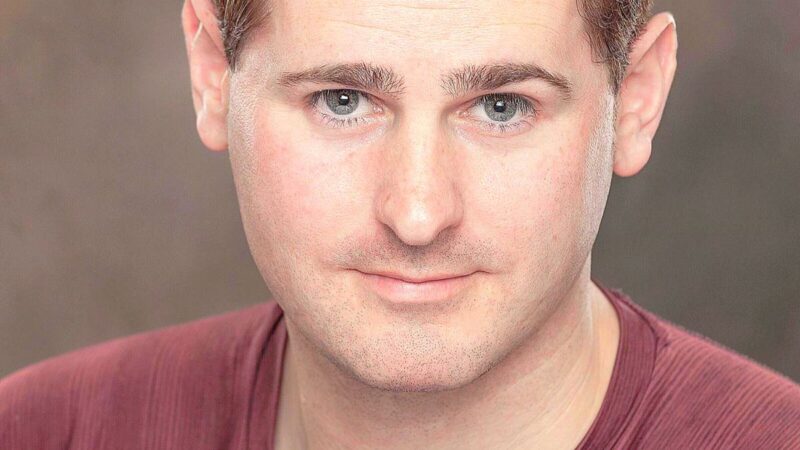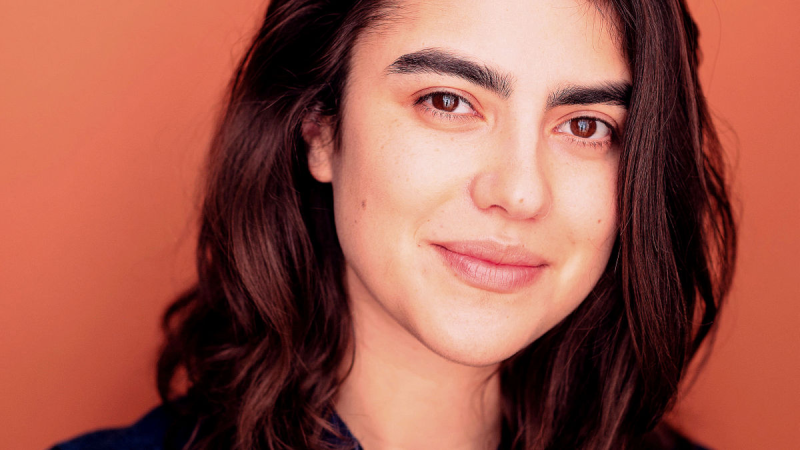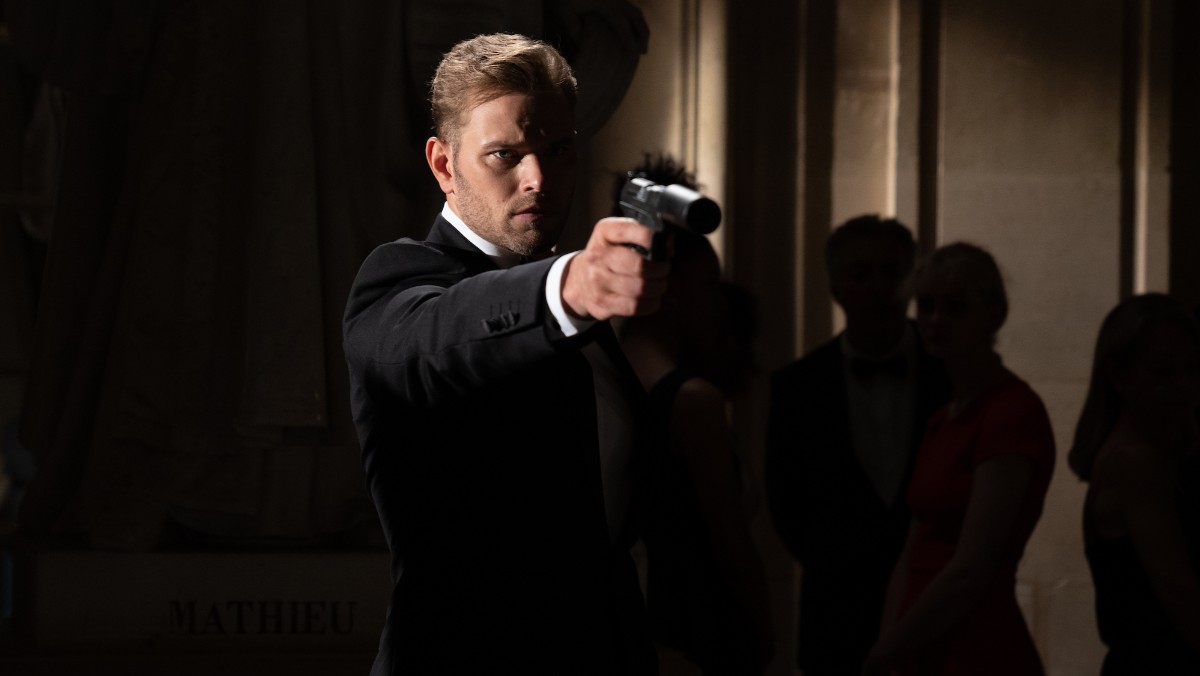
An Industry Case Study
Narrative | Dramatic Features
Film Name: Divertimento
Genre: Thriller
Length of film: 31 minutes
Date: 2021
Director: Keyvan Sheikhalishahi
Producer: Keyvan Sheikhalishahi
Writer: Keyvan Sheikhalishahi
Cinematographer: Jean-Claude Aumont
Production Company: Amitice
Financing: Keyvan Sheikhalishahi
Shooting Format: 2.35:1
Screening Format: 2.35:1
Awards: 42 festivals, 22 awards
Website: https://www.imdb.com/title/tt10417726/
The Official Trailer for Divertimento
Watch The Trailer for Divertimento directed by Keyvan Sheikhalishahi
A Short Biography of Keyvan Sheikhalishahi
Keyvan Sheikhalishahi was born on April 15, 1998 in Levallois-Perret, Hauts-de-Seine, France. He is a director and producer known for Divertimento (2020), Nox (2019), and Vesper (2017). His blog was shortlisted among the 10 best cinema blogs of France in 2015 by the Golden Blog Awards, organized by the city of Paris. Divertimento is a suspense thriller short film between reality and imagination in which each character embodies one of the chess pieces. The film has already been selected in 22 festivals and won 16 awards, including USA, Orlando, Santa Monica, Irvine, Philadelphia, Louisville, Julien Dubuque, Utah, Dublin, and Paris international film festivals.
The Keyvan Sheikhalishahi Interview
indieactivity: Tell us about “who you are”?
Keyvan Sheikhalishahi (KS): I’m a French filmmaker who has made three shorts so far. I made the last one Divertimento at age 21 in Paris.
Introduce your film?
Keyvan Sheikhalishahi (KS): Divertimento is a thriller about a chess player and a castle. It starts introducing a game, but it rapidly becomes something else, something much different. We can see that the characters involved in the story seem to be chess pieces themselves… and then, the movie becomes a kind of a tale, with, I hope, some surprises.
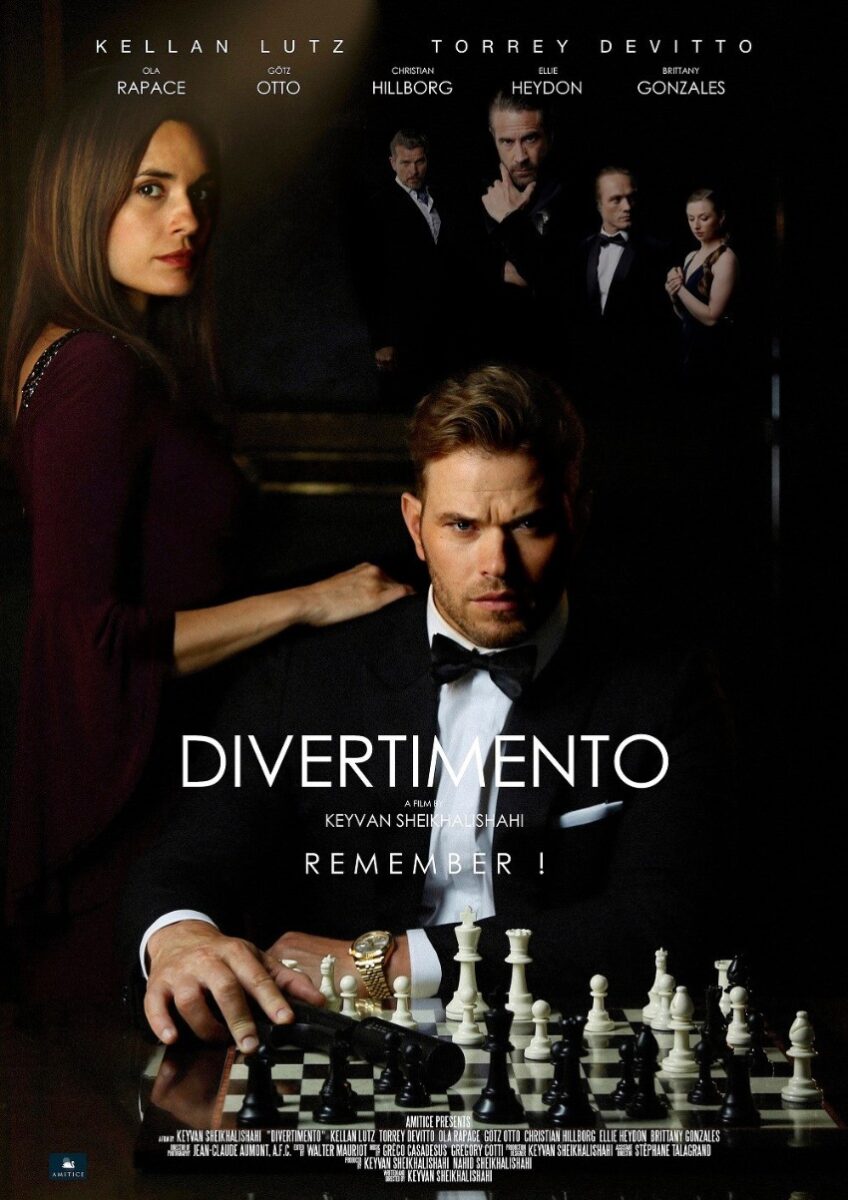
Tell us why you chose to put on all these hats? You’re the writer, director, and producer but also the costume, the production, and the poster designers. Was it financial, chance, or no-budget reason?
Keyvan Sheikhalishahi (KS): While we had a much bigger budget for this short film, it was still an indie film. The logic of the indie film is that you need to do as much as possible yourself. I thought, if I felt able to do all that stuff, then I could do them myself, couldn’t I? Experimenting with several jobs was also a very good opportunity to learn things and have more experience.
What is the source of the idea? How did the story develop from the idea? And how did the story evolve into a screenplay? Why does this story? Do you have a writing process?
Keyvan Sheikhalishahi (KS): I’m used to writing my stories having several ideas in mind and then gradually mixing them together to create the whole thing. At the beginning of this story, I had a game in mind, but it looked too much like David Fincher’s The Game, which is a great film! Then I had the idea to create a chess match, and associate each character with a chess piece. I wanted a bigger film than what I’ve done before, with a lot of actors on a huge set. So I wrote accordingly, and I built a story which naturally set in a castle with different timelines. Then I introduced the reality/fantasy narrative structure, and the story became more elaborated and original. I remember the process was pretty long, but I loved writing this story, I felt it was something special.
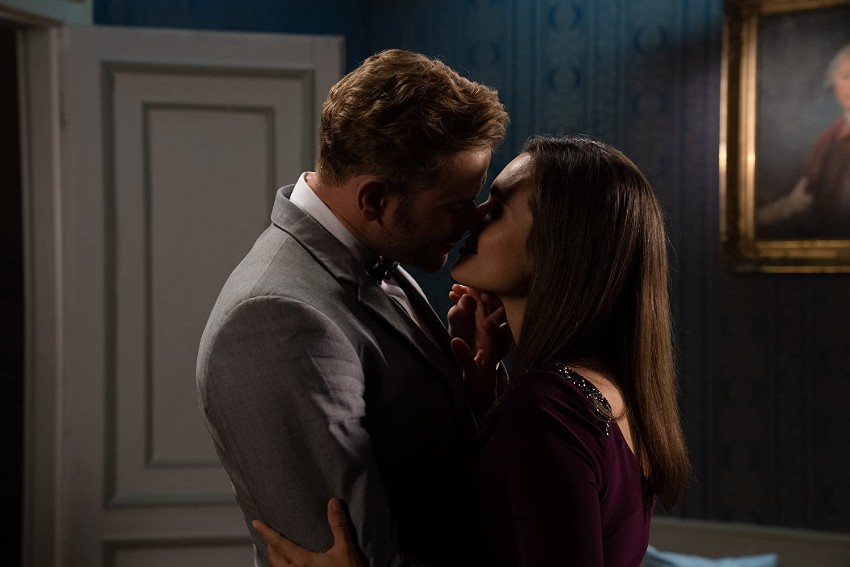
What were your inspirations for this film? Several signs suggest a James Bond inspiration, can you confirm it?
Keyvan Sheikhalishahi (KS): I was annoyed to hear that a short and particularly an indie short can’t look like a feature, and even less like a studio film. I wanted to write a story and make a film that would just suggest the opposite. I was of course inspired by some favorite filmmakers such as Christopher Nolan, David Fincher, and Alfred Hitchcock, and you’re right I was also influenced by James Bond. The idea was to make something that looked like Bond but in the thriller genre. This is a suspenseful film, a psychological/fantastic tale, but still, it has a Bond feeling, and lots of people, whether fans or professionals working in the industry are telling me this. I can only be happy, Bond will always inspire me, in one way or another, and has a major influence on the next project too.
Let’s talk pre-production: take us through a timeline of how you started and ended it.
KS: The whole process, from the first idea of the story to the end of the post-production, took me three years. This is also why I made a second short, between my first one and this one.
What were your rehearsal process and period?
KS: I couldn’t do a rehearsal. The shooting was based in France and all the actors came from other countries, particularly Kellan, Torrey, and Brittany came from Los Angeles. And in France, we didn’t have the time to organize a rehearsal process. All the actors were very well prepared and also reached out to ask some questions, to be ready once on a set.
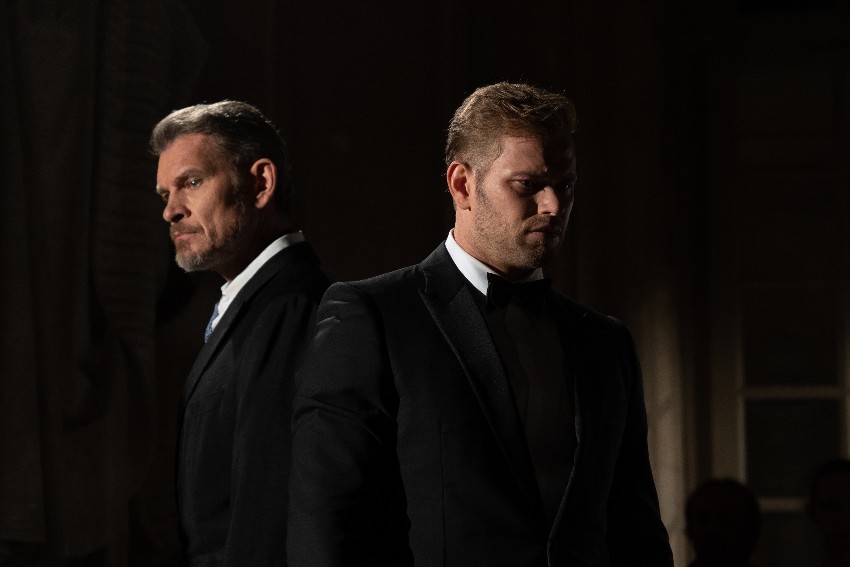
You shot the film in 5 days. How long were your days?
KS: We had long days, especially because the set was huge, and the story we were telling was ambitious too. We shot in very large rooms in an old castle, which required a lot of time to light them. In addition, the story takes place 99% only by night, which is always an additional complicating thing but only better visually.
Did the tight shooting schedule make it harder or easier? How did it affect performances?
KS: What’s important is to be very well prepared, this is something which counts a lot to me. The schedule made without a doubt harder, but we were prepared. It didn’t affect performances, the cast was not really directly affected by the tight schedule, I think they remember this shooting as an enjoyable one. It did affect one actor particularly as I asked him to work one more day, and he kindly accepted. This is the world of indie film, if you’re well prepared, you can always find solutions.
During the film production, what scene (that made the cut) was the hardest to shoot? And why?
KS: The hardest was clearly the shot of the castle’s explosion. And you’ll understand why, the shot lasts five seconds in the film, but it took us, about four or five hours to take it. This was a shot without actors, not the most important in a narrative way, still, we wanted it, as the explosion was significant in the story and we wanted the film to be the most impressive as possible. I’m happy that lots of people are impressed by the explosion and actually, it’s among the things that I’m told and asked the most, so, it’s great!
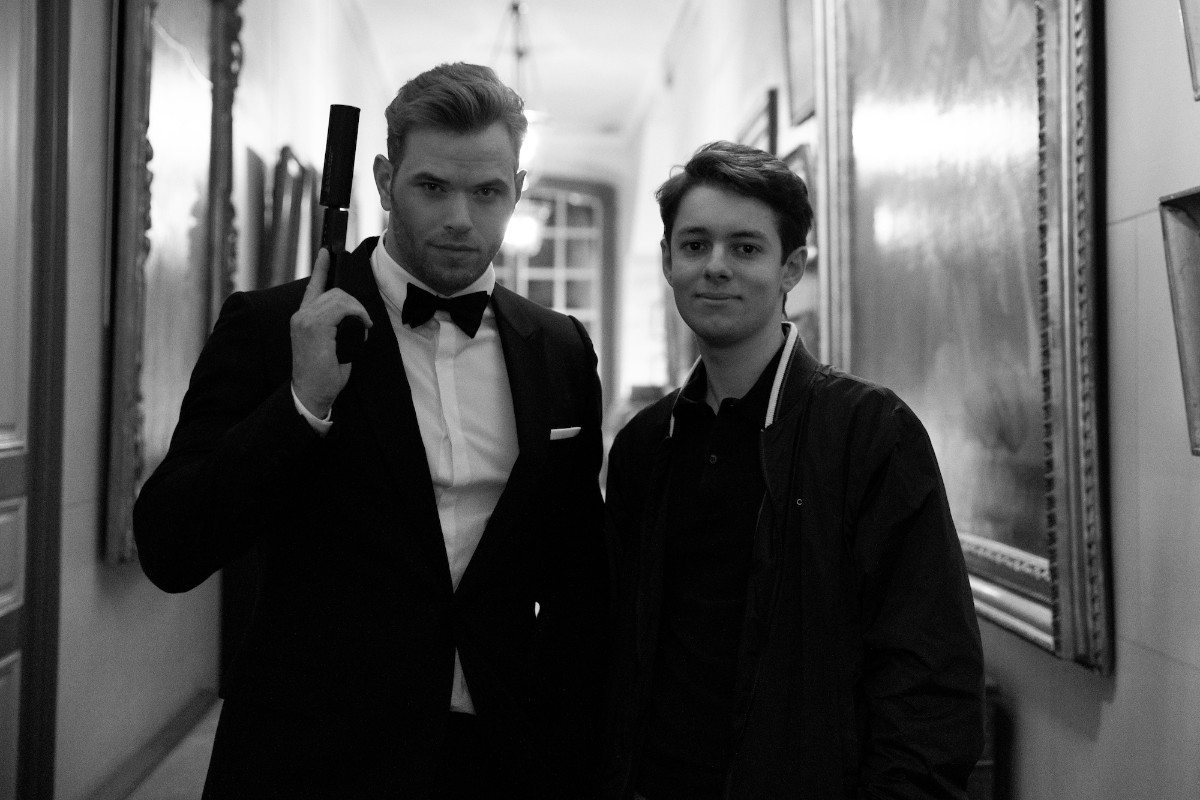
How was it for a 21-year-old filmmaker to work with such film stars as Kellan Lutz and Torrey DeVitto?
KS: It was incredible and I still feel very grateful that they believed in this story and the film that we wanted to do. They were very easy to work with and they were full of energy and happiness on set. We all loved what we were doing. I’m happy the film is also theirs.
Are you still in contact with them?
KS: Yes, I am.
What were the advantages and disadvantages of the way you worked?
KS: The biggest advantage of an indie film is that everyone in the team is part of one big family, whether you’re a lightning or grip technician, an assistant to a filmmaker, or a film star. We were all in the same boat wanting to do the best film we could. And as for the disadvantages, of course, an indie film doesn’t have lots of money. Money issues are always recurrent and annoying, even if your budget is much bigger.
What was the experience like of working with a bigger shooting crew?
KS: I had a crew three times bigger than in my previous films, I think, globally, 150 people helped me. And for the first time on set, we had a cook, who made delicious food, under a large tent. For my previous movies, I brought myself the meals and the food on set. So all this felt like we were shooting something which was actually between an indie film and something much bigger.
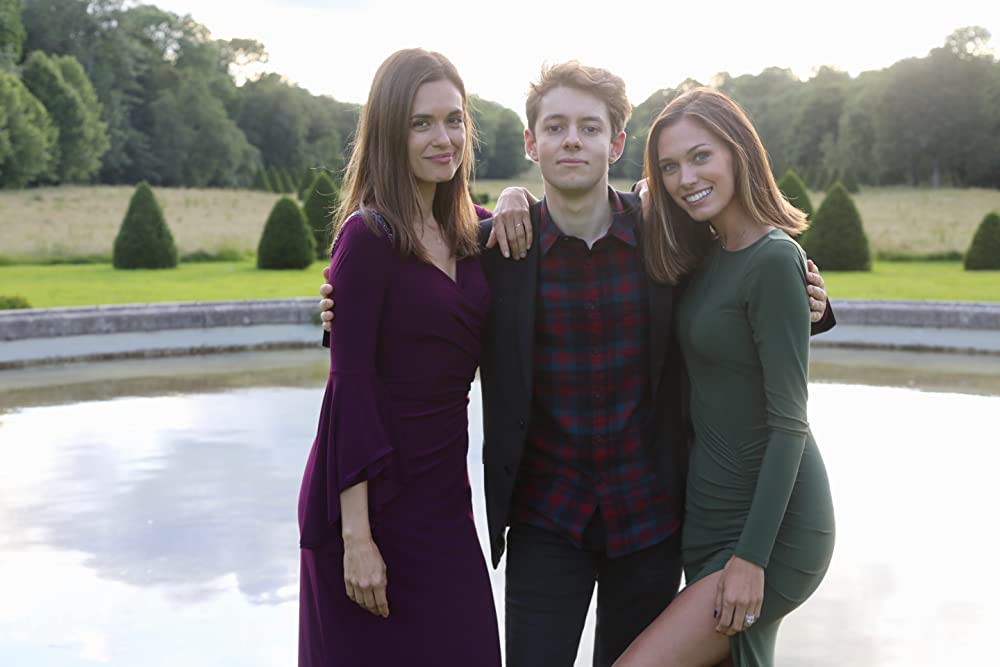
The film is stunning. How did you get such a good look when shooting so fast?
KS: Kudos to my DP! Well, the atmosphere is something very important to me. I think each film deserves its own atmosphere, it’s why I’m working a lot with the DP and the score composers in particular. A film is a mix of different aspects and approaches, and that’s the work of the director to find a good balance, and how you mix everything together. I mean, the film needs the cast, the shots, the story but also lots of other things, such as the atmosphere.
When did you form your production company – and what was the original motivation for its formation?
KS: I formed it for my first short film.
What was the first project out of the gate?
KS: I made my first short film Vesper two or three weeks after finishing high school, and I was lucky enough to film with Götz Otto, it was a big dream.
Where do you think your strengths lie as a filmmaker?
KS: I think, or at least hope that I’m naturally in this for a long time. I mean, I started to watch lots of films at a very young age. I’m fascinated by movies since then. I always admired how much power a story or a film can benefit, and affect the day of someone, or even his life or future. Look at me for instance! I watched films and I’m doing them, now! That’s the power of cinema.
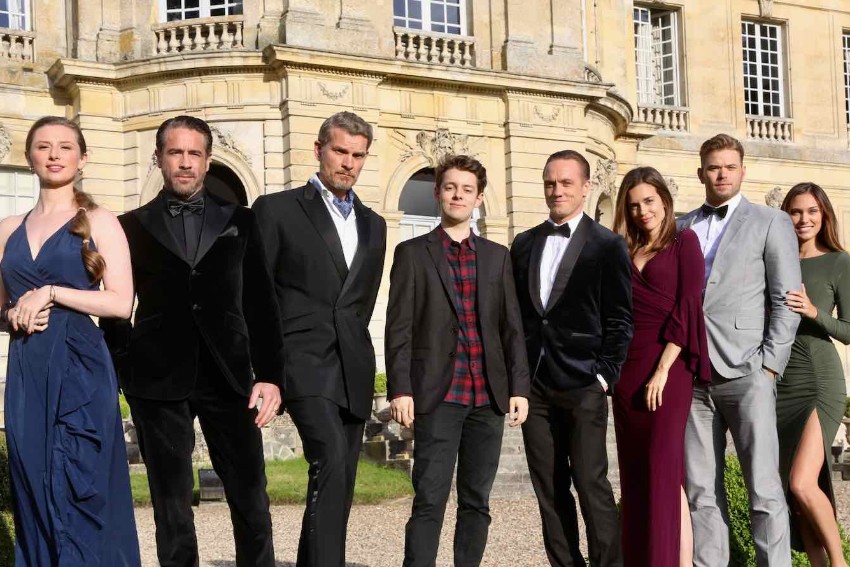
Let’s talk about finance, How did you finance the film? How much did you go over budget? How did you manage it?
KS: I financed myself and I didn’t go over budget, fortunately.
How important is marketing? Talk about the festival tour? Do you think a project can make a dent without it nowadays?
KS: Today, there are much more movies and even more shorts. I think it’s important for a short to be successful, whether in festivals or in another way. A successful short has an audience, even a small one, otherwise, it would be swallowed in the large number of films done each year. So, even if five or ten unknown people are asking you if they’re interested to watch your short, that’s already a success. And for the next step, try to attract more people, more festivals, and more interest.
Tell us about marketing activities or efforts on this project – and how they worked or didn’t work?
KS: I was happy that lots of people were hyped by the visuals and the trailers on social media and I received hundreds of messages from people asking me where to watch it!
What do you hope audiences will get from the presentation of your film?
KS: I hope they’ll enjoy the film and that they’ll be curious or impatient to watch my next film, that would be great.
What else have you got in the works?
KS: I’m writing a script. It’s not very different genre-wise from my previous films but still has very different approaches. What drives me is to do a different project each time.
Tell us what you think of the Case Study for Divertimento. What do you think of it? Let’s have your comments below and/or on Facebook. Or join me on Twitter.
Follow Keyvan Sheikhalishahi on Social Media
Website
IMDb
Twitter
Instagram
MORE STORIES FOR YOU

